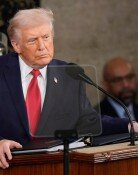Arrest Warrant Filed for Lawmaker Kim Hee-sun
Arrest Warrant Filed for Lawmaker Kim Hee-sun
Posted March. 14, 2005 22:03,
The Seoul District Public Prosecutors Office (DPPO) Special Affairs Department Number Two filed an arrest warrant on March 14 for Uri Party lawmaker Kim Hee-sun, who had been suspected of selling public recommendations, and was charged with violations of the political fund law as well as malfeasance.
On the matter of dealing with politicians who were bribed for public recommendations, the prosecution traditionally applied political fund laws or election laws, but for the first time, an accusation for malfeasance was also applied to Rep. Kim. The issuance of a warrant will be decided on March 15 after a warrant examination trial takes place.
The Charges-
In the face of the 2002 regional elections, Kim is alleged to have received 200 million won from a certain Mr. Song, who at the time was preparing for the Democratic Partys inner elections to assume the role as chief of the Dongdaemun-gu district office.
Kim asserts that she had merely borrowed 100 million won, while denying reception of the other half. However, this was proven wrong by the prosecutions tracing of accounts and the testimony given by a case-related district official.
Concerning the 100 million won Kim insists to have borrowed, the prosecution views it as an act of bribery, referring to the fact that the loan receipt was discarded on March 2003, when the elections for the chief spot of Dongdaemun-Gu were about to be held.
The prosecution will prosecute this case as one of malfeasance in the use of money, while charging her other wrongdoings with violations of the political fund law.
How the Arrest Warrant Was Filed-
The prosecution struggled to decide the laws to apply to the case, as well as the severity of punishment.
It has been told that some executive members of the prosecution opposed the first-ever accusation regarding malfeasance.
A minority report, said to have been given by a set of experienced prosecutors, noted that the law stating the breach of duty during business, can only be applied to one who deals with anothers asset-related affairs, making it beyond ones power to apply the law in political matters.
However, it was told that the contentions of investigation prosecutors were hard-lined.
Prosecutors believe the task of a district party chief commissioner should be making sure that the administration of party elections is done without bias. Therefore, Kims receipt of money that led to the violation of this role was seen as the essence of a breach of duty or malfeasance.
In the end, the chiefs of the special, criminal, and financial investigation departments went through a prosecution examination session hosted by the Seoul District Public Prosecutors Office, and eventually decided to file a prior-arrest warrant, charging Kim for breach of duty.
Jin-Young Hwang buddy@donga.com






![‘부화방탕 대명사’ 북한 2인자 최룡해의 퇴장 [주성하의 ‘北토크’]](https://dimg.donga.com/c/138/175/90/1/wps/NEWS/IMAGE/2026/02/27/133414028.1.jpg)
